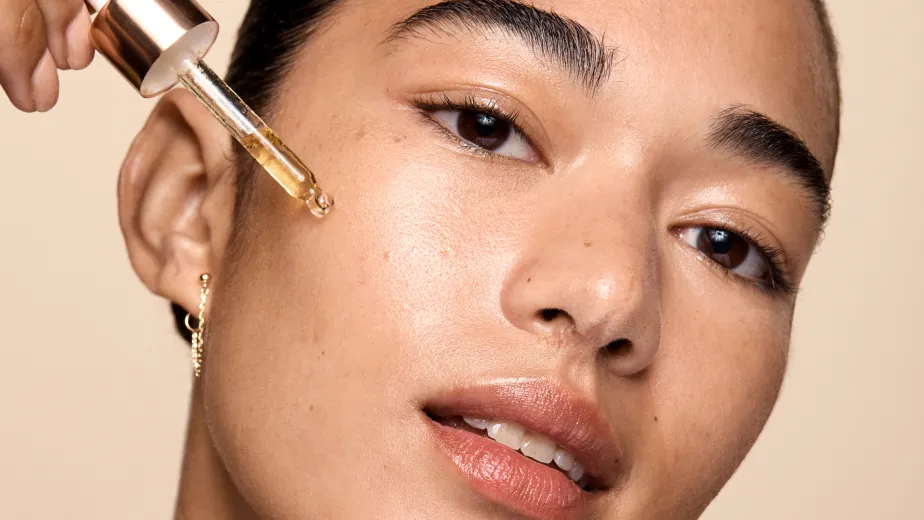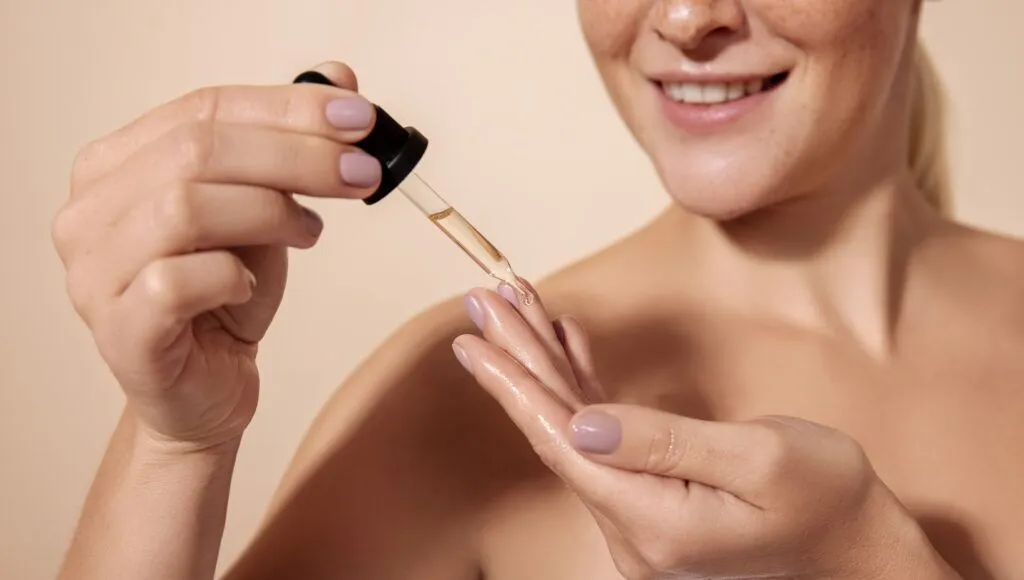Can You Use Retinol with Vitamin C? Is it effective? It may be, but these MVP ingredients are even more effective when combined. Below, all you need to know about pairing this derm-favorite duo, plus the best retinol and vitamin C products to try now.

But then, can you use retinol with vitamin C? Well, retinol is a derivative of vitamin A widely used in anti-aging skin products that helps stimulate collagen production (the protein responsible for smooth, firm skin) and cell turnover (your skin’s process of renewal).
“By making cells behave as if they’re younger cells, retinol can smooth fine lines and wrinkles, fade dark spots and hyperpigmentation, and improve tone and texture of the skin.
Retinol is also a wonderful product for treating acne because it “acts on a cell-by-cell level to help reboot your cell turnover rate, suppress inflammation, and lower oil output, all essential processes for keeping pores open and skin clear of blemishes.
How does Retinol Function?
Retinol is also available in various strengths over the counter or by prescription (side note: prescription-strength retinol is more effective against acne than the over-the-counter or drugstore version) and tends to be in a face serum, gel, or night cream form.
If you were routed to the over-the-counter retinol route, choose one that’s “encapsulated.” That way, the retinol is released into the skin gradually in order to prevent any irritation and keep the ingredient stable.
As a general rule, it is best to start with a low percentage, like 0.25, and then gradually increase to a higher concentration, like 0.5 or 1.0, depending on how your skin can tolerate it.
What Cannot be Used with Retinol?

This product is strong and will cause the skin to peel, flake, or become sensitive—especially when you first start using it or when you combine it with other strong actives, like AHAS and BHAs.
With that said, retinol cannot be combined with your leave-on products that have glycolic acid, mandelic acid, lactic acid, or salicylic acid.
What is Vitamin C and what does it Do?
This is a powerful antioxidant that will have the promise to prevent signs of aging and reverse skin damage when used as a topical.
Also, in a preventive manner, vitamin C is excellent at protecting the skin from free radical damage caused by environmental stressors such as pollution, infrared radiation, and blue light.
On the repair front, vitamin C also helps stimulate collagen production and help regulate melanin production to remove hyperpigmentation and give skin good overall vibrancy and glow.”
Research has also shown that vitamin C, which is usually in serum form, can boost the protective benefits of SPF when used together.
What to look for in a Vitamin C Serum

Not all vitamin C serums are created equal. In Dr. Marchbein’s opinion, the optimal formulas contain one of the seven most popular derivatives of vitamin C below:
1. L-Ascorbic Acid
The most studied and potent form of vitamin C. While highly effective, it is too irritating for sensitive skin. And, it’s unstable, so unless in good packaging, it won’t be effective.
2. Tetrahexyldecyl Ascorbate (THD)
A vitamin C derivative as powerful as L-ascorbic acid, but much more stable and less irritating to the skin.
3. Sodium Ascorbyl Phosphate/Magnesium Ascorbyl Phosphate
Two stable, moisturizing derivatives of vitamin C that work well with niacinamide.
4. Sodium Ascorbate/Calcium Ascorbate
Also referred to as vitamin C esters, they are two other stable and non-irritating derivatives of vitamin C:
The level of vitamin C in the formula. Typically, vitamin C serums that have 10 to 30 percent of the ingredient work best at correcting dark spots and hyperpigmentation, and anything under 10 percent is a great antioxidant and will keep skin from free radical damage.
And lastly, watch the packaging. Depending on the form, vitamin C will oxidize (or become less effective) when it’s exposed to light and air. To maintain your vitamin C serum’s freshness and efficacy, seek out a formula that’s packaged in opaque, airtight packaging when possible.
What are the Side Effects of Combining Retinol and Vitamin C?
Retinol and vitamin C are both very powerful ingredients, which, in so many ways, is what makes them so worth it, but it also means you need to use them with caution.
When you use these ingredients together, it is great for getting the protective and anti-aging benefits that you want. But the downside is that they are irritating to the skin.
And especially so if you do have sensitive skin: “Combining both retinol and vitamin C can cause redness, itchiness, sensitivity, and other unwanted side effects.”.
That said, you can avoid or minimize irritation by keeping the time between applying these two ingredients separate, or else applying your vitamin C in the morning and your retinol at night.
Final Words
Generally, yes, retinol at night and vitamin C in the morning. In the morning, put your vitamin C serum on clean, dry skin, and then follow with a face moisturizer for your skin type and sunscreen with SPF 30 or more.
If you have a face moisturizer with vitamin C, then just SPF on top is fine. In the evening, you would apply your retinol to dry, clean skin, and if you have dry skin, you may apply it on top of a hyaluronic acid serum or moisturizer.
And because retinol has a tendency to make the skin too dry around the eyes and mouth, apply an occlusive ointment, like Aquaphor or Vaseline, to those areas prior to applying your retinol to provide a protective barrier.
And FWIW, if you’re a type of person who doesn’t want to have to go through an a.m. and p.m. ritual and would simply like to focus on skincare in the evenings, you can mix vitamin C and retinol if it’s included in one product, for example, one of the following:.
